13 Minutes
CONTENTS
Mental health professionals have realized that living with Post-traumatic stress disorder (PTSD) can have a massive effect on your everyday life, which is why inpatient and residential PTSD recovery centers across the country can help you with your condition, walk you through the multiple treatments available, and develop a treatment plan to help alleviate the symptoms of this disorder.
If you have PTSD, you will repeatedly revisit the memories in your mind as flashbacks or nightmares, which may be followed by emotions of loneliness, irritation, and occasionally guilt if you believe you might have done something to prevent the traumatic events from occurring.

If you have PTSD, you will repeatedly revisit the memories in your mind as flashbacks or nightmares, which may be followed by emotions of loneliness, irritation, and occasionally guilt if you believe you might have done something to prevent the traumatic events from occurring.
Even if your symptoms arise after the initial incident, PTSD can be treated successfully, with the sort of treatment offered to vary based on the intensity of your symptoms and how early they appeared after the event.
You may develop PTSD symptoms right after a traumatic event, but many people endure a months-long or even years-long delay in the appearance of symptoms. When these symptoms do appear, they may recur often and significantly impair your capacity to perform on most days, while other people with the disorder can go for long periods of time without experiencing any symptoms before experiencing a flare-up.
FAQs
A UNIQUE METHOD TREATING Trauma & PTSD
a successful and proven concept focusing on underlying causesTrauma & PTSD TREATMENT LASTING APPROACH
0 Before
Send Admission Request
0 Before
Define Treatment Goals
1 week
Assessments & Detox
1-4 week
Psychological & Holistic Therapy
4 week
Family Therapy
5-8 week
Aftercare
12+ week
Refresher Visit
Trauma & PTSD Insights
latest news & research on Trauma & PTSD
PTSD Episodes
PTSD episode is a stressful event that affects people suffering from Post-Traumatic Stress Disorder (PTSD) as they recall their traumatic experiences with emotional and physical manifestations.
read more
Understanding and Treating Trauma & PTSD
Trauma can be caused by any overwhelming experience that threatens or causes harm, either physical or emotional
read more
Best Trauma Treatment Centers
Joining an intensive trauma treatment center is essential because these specialized facilities offer a comprehensive approach to recovery
read more









































































